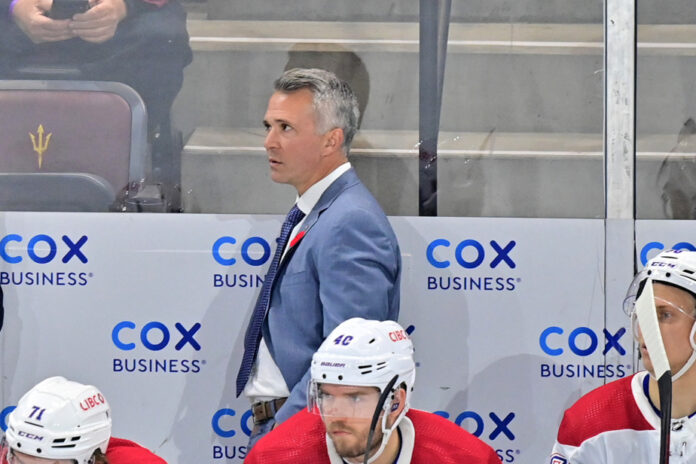A real scourge at the start of the campaign, the Canadian’s problem of indiscipline seems to have resolved over the last 10 games.
It’s a hell of a chance. Because in the same interval, the Habs were also the worst shorthanded team in the league. Since November 14, Montrealers have allowed an average of one goal every three chances. It comes up often.
We are also talking about at least one shorthanded goal allowed in seven of the last ten games. The rare flawless performances came in evenings with one, two and three penalties, respectively.
Overall for the season, Martin St-Louis’ men have an efficiency rate of 73.4%, 29th in the NHL.
The statistics say that the goalkeepers are not to blame. So it’s with the four skaters on the ice that something is wrong.
After Wednesday morning’s practice, St. Louis was more interested in discussing the Los Angeles Kings’ 1-3-1 system than his club’s woes with one less man.
“We are a young team,” he recalled. We learn to deal with punishments together. There are times when it’s great. But we are looking for consistency. We will continue to work on this to [know] fewer sequences where we are less good. »
The coach’s tone and the brevity of his response did not call for a reminder. As well, in this case, turn to Johnathan Kovacevic, the Canadian’s most sought-after defender in numerical inferiority in the absence of David Savard.
In his eyes, it is on the tactical level that this unit achieves the most. At the end of last season, the Habs changed their shorthanded coverage scheme. By adopting the “diamond” strategy, very common in the league, we send an attacker to the top of the zone, an attacker and a defender behind him and a last defender near the net. This formation makes it possible to better counter cross-ice passes in the middle of the territory, but poses a risk if the team on the power play manages to control the disc at the mouth of the goal.
This risk was brilliantly illustrated last Saturday against the Detroit Red Wings. On the visitors’ fourth goal, Moritz Seider patiently waited for Christian Dvorak to compromise, before sending the disc to Alex DeBrincat who, left alone, did not ask for so much.
At training camp a few weeks ago, Rafaël Harvey-Pinard said that the group of specialists in this phase of the game, of which he is a part, were getting to grips with this new pattern. Obviously, the break-in is not yet complete.
“The trend started six or seven games ago,” Kovacevic believes. [Our opponents] started to expose us with plays at the bottom of the zone, where we gave them too much space. And if one team does it, the others will see it and try to replicate it. »
By definition, with a man less, “you always have to give something,” Kovacevic continued. “Our job is to provide the least dangerous option possible. Right now, it’s not working. We need to go back to the drawing board. »
So these days we’re trying to figure out how to “close these holes quickly” and “try to be proactive rather than reactive.” On video and on the ice, “it’s our priority this week,” confirms the defender.
As luck would have it, CH’s next opponent, the Los Angeles Kings, also adopted the “diamond” this season. With an efficiency rate of 88.4%, third in the NHL, we can argue that things work a little better there.
According to Phillip Danault, this new system, which allows “more pressure” to be exerted on the five-man attack, has caused “a big difference” in the city of angels. Note that the Kings are better off than the Canadian in terms of personnel, and that three of the seven most used players with one less man in Montreal – Savard, Harvey-Pinard and Jordan Harris – are currently on the list injuried people.
However, the key to success, according to Danault, can be summed up quite simply: “Everyone must work well together. »
Kovacevic agrees: “You have to have one brain: it’s not just one guy who has to be aggressive, but all four at the same time. » Which involves repetitions, over and over again, as is the case with a power play unit.
Moreover, noted the defender, the most effective duo of the CH this season in this regard is made up of Joel Armia and Jake Evans, who have played together for years. And both embrace this task with enthusiasm.
“Awarding penalties is something you have to do with pride and a lot of passion,” concludes Kovacevic.
This is undoubtedly even more true when the machine experiences failures. Like now.















